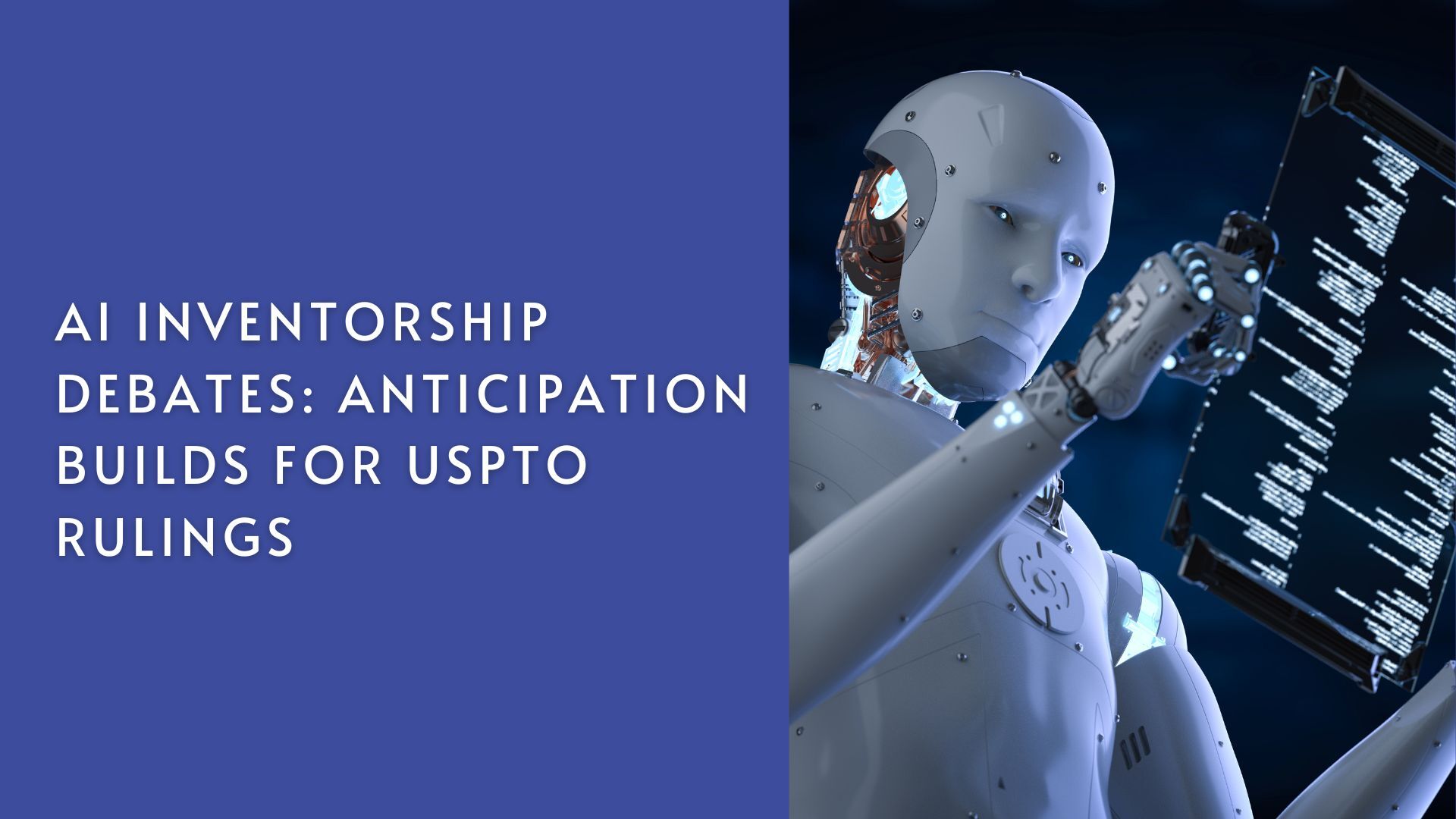AI Inventorship Debates: Anticipation Builds for USPTO Rulings


Anticipation is mounting for the United States Patent and Trademark Office (USPTO) rulings on the issue of AI and inventorship. Current expectations suggest that only natural persons will be recognized as inventors, despite the significant contributions made by AI systems to various inventions. This decision could have far-reaching implications for the future of patent law and innovation.
The debate over whether AI systems can be considered inventors has intensified in recent years. With AI’s growing role in research and development, some argue that these systems should be acknowledged for their contributions. However, the prevailing sentiment is that patent law should continue to recognize only natural persons as inventors. This stance is rooted in the traditional view that inventorship is a human endeavor, requiring human ingenuity and intention.
The USPTO is expected to uphold the principle that only natural persons can be named as inventors on patent applications. This expectation is based on the current legal framework, which defines an inventor as an individual who contributes to the conception of an invention. Since AI systems operate based on algorithms and programmed instructions, they do not possess the human qualities of creativity and intentionality required for inventorship under existing laws.
If the USPTO maintains the human-only inventorship requirement, it could have significant implications for the future of innovation and patent law. On one hand, it reinforces the traditional view of inventorship and ensures that humans remain at the forefront of technological advancements. On the other hand, it raises questions about how to properly acknowledge and reward the contributions of AI systems to new inventions. Companies and researchers may need to navigate these complexities when developing and patenting AI-assisted innovations.
The challenge lies in balancing the recognition of AI contributions with the regulatory framework that governs patent law. Some experts propose creating a new category for AI-assisted inventions, where the human contributors are recognized as inventors, but the role of AI is also acknowledged. This approach could provide a more nuanced way of handling AI’s involvement in the invention process while maintaining the integrity of the patent system.
The ongoing debates and anticipated USPTO rulings highlight the evolving nature of legal and ethical considerations surrounding AI and inventorship. As AI technology continues to advance, it will be crucial for legal frameworks to adapt and address these emerging challenges. The outcomes of these debates will shape the future of how inventions are recognized and protected, influencing the direction of innovation for years to come.
The USPTO’s expected decision to limit inventorship to natural persons underscores the complexity of integrating AI into the patent system. While this approach aligns with current legal definitions, it also points to the need for ongoing discussions and potential reforms to accommodate the growing role of AI in innovation. As the technology landscape evolves, so too must the laws and policies that govern it, ensuring that the contributions of both humans and AI are appropriately valued and protected.
Oops! We could not locate your form.